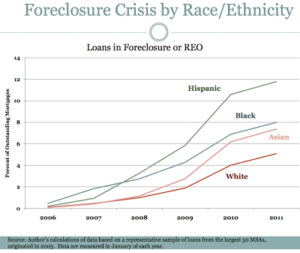Different groups have different gifts and different interests and whenever one group rises in power, other groups necessarily decline in power. I am all for examining the different roles different groups play.
Steve Sailer, Tom Sowell and Paul Sperry have done great work on this topic. They don’t lay the GFC (Global Financial Crash of 2008) at the feet of the Jews.
I found the first season of the TV show Billions disappointing because there are no discernible Jewish characters, which is ridiculous for a TV show about wrongdoing on Wall Street. Whenever someone big gets arrested there, it seems like it is either a Jew or a south asian (Indian usually, such as Raj Rajaratnam or Nav Sarao).
The majority of Jews since the 15th Century have made their living as white collar workers. With the average Ashkenazi IQ around 113, and with their people’s tradition of success in finance, it is to be expected that this group will dominate economics.
Jews and Judaism’s dual morality (one rules for behavior within the group, another more relaxed set of rules for behavior with outsiders) is the universal moral norm except among WASPs. Jews do best in individualist WASP countries. Compared to the good citizenship of WASPs, no other group comes close to their ethics. Jews consistently have more financial and sexual scandals than Anglicans, but who can argue that Jews have worse business ethics than the Chinese, Latin Americans, and other Mediterranean peoples.
Given the amount of suffering that Jews have had at the hands of non-Jews, many Jews feel no sympathy for the plight of the goyim.
…The reporter seemingly did not know that the designation “white-shoe law firm” was invented to describe firms at the pinnacle of the WASP establishment, no Jews allowed, named apparently for the shoes these WASPs favored in the summer at their restricted country clubs.
In the 1960s, my partners and I were attempting to establish an economic consulting firm that marketed its services to law firms and public utilities. The “white-shoe” firms were off-limits. We identified them by adding up the Roman numerals after partners’ names—I, II, III, etc.—adding to that partners with first and last names that were interchangeable, and dividing by the total number of partners. A high result meant we had no chance.
Then there were cases in which no such arithmetic was needed. A partner in one firm told me at a cocktail party, after his usual consumption of truth-producing alcohol, that he was happy to be living in a New York suburb that did not allow Jews. That firm later merged with another; both went bust. Another pointed out that the new civil rights legislation wasn’t a problem for him because it did not protect Jews, whose upward drive would threaten him and his executives. The general counsel of a public utility invited me to lunch to congratulate me on starting the firm and added what he thought was encouraging news: “If we ever hire a firm with Jews, your firm will be the first.”
We were not the only disadvantaged group. One company CEO told me that he was certain new legislation did not force him to change a company rule that permitted men, but not women, to smoke at their desks. In the early 1960s, women were finding it difficult to procure professional positions, both in law firms and in the consulting field. Our firm took advantage of that market imperfection by hiring the best and the brightest women economics graduates, with emphasis on my mentor’s and my own former students at Cornell. When I was due to testify at an administrative proceeding at a Washington regulatory agency, I brought my assistant along to help check data, refresh my recollection during recesses, find sources, and perform other chores. The hearing officer quietly suggested to me that it was inappropriate to have a woman in the hearing room; I argued that she was entitled to see the fruits of her research and prevailed. It wasn’t easy.


